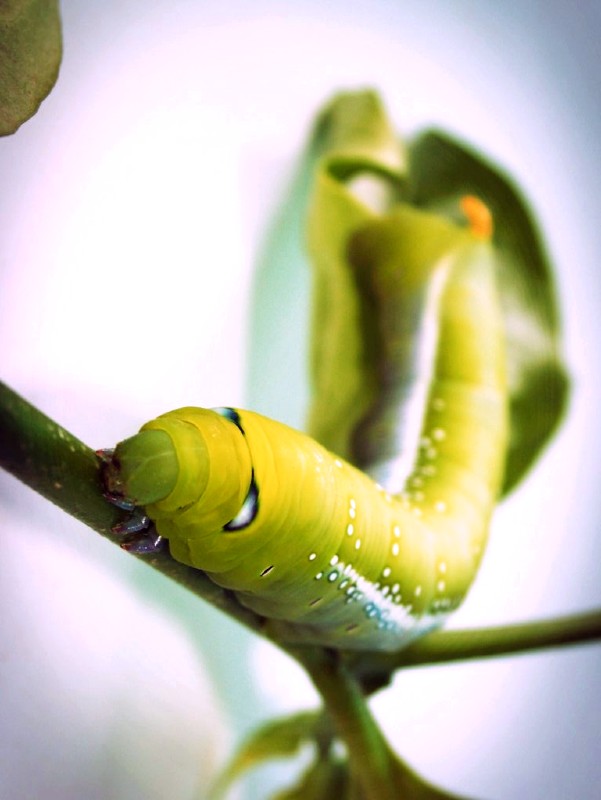
18 secret home pest control methods
- Your garden is an ecosystem, insects, birds and animals around you. so the Insects play an important role in the garden.
- Not every insect is an enemy. You need to be able to identify your friends and foes, and then encourage the friends and frustrate the foes.
- Some are pollinators, some break down organic matter, and some are beneficial predators that feed on the real enemies.
- Most of the insects are actually beneficial, providing a means to control insect pests.
- If you can use organic methods of pest and disease control that means you have a healthier garden.
- Organic pest controls do not try to eliminate all insects. In fact, the vast majority of insects are friendly or beneficial.
- Insects such as ladybugs, lacewing flies, and praying mantises feed on bugs that are destructive to your crops. You should protect them when you find them in your garden.
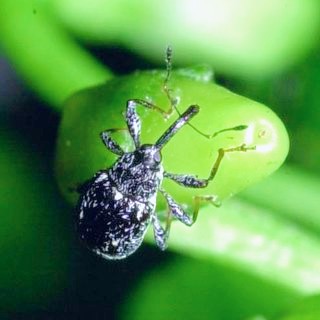
pepper weevil 
Caterpillar 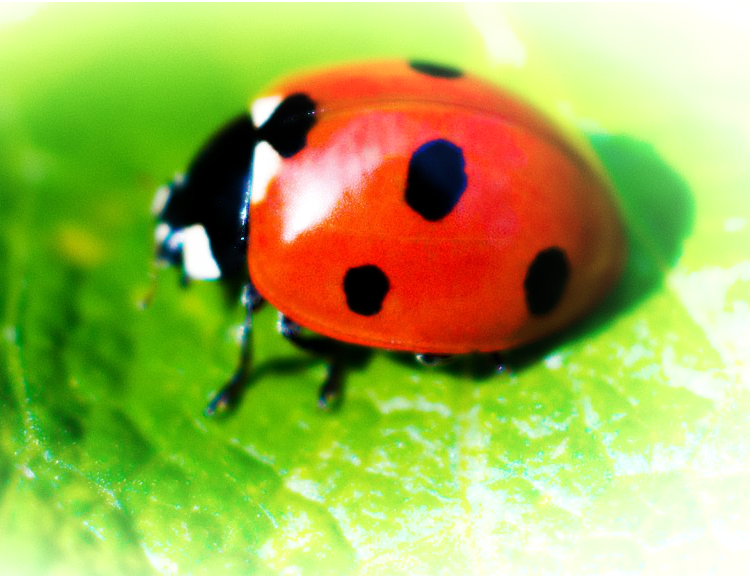
Ladybird beetle
The organic approach requires that you spend a bit more time in your garden, take extra good care of your plants, and keep an eye out for early signs of insect attack or disease symptoms.
Here we are provided most important Organic pest control methods
Interplanting herbs and flowers in your garden for pest control
- Interplanting herbs and flowers in your vegetable garden is effective way to protect your garden.
- Some plants, such as lemongrass and marigold, seem to repel insect pests. Other plants, such as dill, mint and fennel, attract beneficial insects that kill on garden pests.
- Mixing some of these plants into your vegetable garden will foster a more diverse and naturally healthy ecosystem
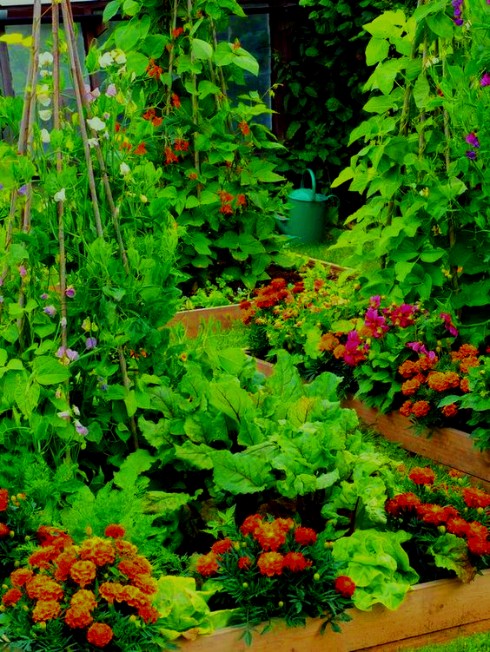
Watch for more Info:
Crop rotation minimize insect damage
- crop rotation can reduce insect damage and minimize exposure to soilborne disease organisms.
- It means practice of growing a series of different types of crops in the same area across an array of growing seasons.
- Otherwise if you grow the same plant in the same place the next year, you give those pests a big advantage.
- For example- In the first year you can plant heavy feeders like tomatoes and lettuce,then in the second year you can plant peanuts and beans. They actually return some nitrogen to the soil. In the third year, you could let the soil “rest” by planting light feeders, such as carrots or beets. So you have to wait at least two years before planting the same or related crops.
Crop Rotation quick view

Good Air Circulation can minimze fungal infection
- Good air circulation reduce the growth of fungal infections and rot,
- It helps in making their growing limbs stronger.So Don’t overcrowd your plants.
- Good air circulation prevents the damp conditions that promote the growth of fungi and other disease organisms.
- Damp soil is also a big draw for many insects, like slugs and fungus gnats. They will nestle in and make a home for themselves while feeding on your plants.
- When air can flow through and around your plants dampness is not much a problem , gentle breeze is all that is needed for this benefit.
Watch for more info:-
Spraying ashes on vegetable plants helpful to wipe out harmful Insects
- Ash can be sprayed on the crop in the morning.
- Spray the ashes by hand on the top and bottom of the crop leaves. Spraying ashes can wipe out harmful insects.
Soapy liquid is best natural control for garden pest
- Soap liquid helps to retain organic pesticide on the plant for long time.
- Any teaspoon of soap powder or liquid into a liter of water, shouldn’t use Surfexcel. Soap liquid is suitable for use with any natural insecticide.
- So you can sprinkle some Neem leaves oil , cinnamon oil and clove oil with soapy water and add a few drops of kerosene to the same oil and spray it to the crops, it is a good insecticide.
Citrus fruit peels
- Citrus fruits contain natural ingredients that kill or repel pests, Since the ingredients contain in the citrus peels are safe for use as insecticides.
- Make a homemade spray, cleaner or compost to rid pests in your garden.Citrus fruit repels ants, fleas,fungus, gnats, aphids and other pests.
The extraction of Neem Leaves is best insecticide
- It is the best organic pesticide. Crush the Neem beans with water and sprinkle them on the crops.
- Neem Leaves and neem beans are very good insecticide.
Natural sulfur can ward off insects
- Sulfur smell is harmful to pests.Spraying of natural sulfur is preferred .
- Spraying plants with natural sulfur can ward off insects. The smell of sulfur is harmful to insects. it is a good insecticide.
- You can also mix Neem oil with sulfur powder and sprinkled with soap water as needed.The insect repellent by spraying the solution to the plants.
The remaining rice,
- Leave the remaining cooked rice for the rest of the day. Add water to it, cover it for seven days, filter the solution and dilute it again with water and it is better if you can apply yeast or coconut water to it.
- Then spray it to the crops. It is a good insecticide.
Natural Herb solutions
- You can use ginger, Garlic, lemongrass, red onion, and hot chilli together and blend them, then filter the solution after 24 hours. Then spray it into the plants.
- The insect repellent by spraying this solution to the plants
The Lemon leaves or another citrus plants,
- The Lemon leaves or another citrus plants, Neem leaves, soursop leaves, stinking leaves, mosquito leaves, cinnamon leaves, Chinese chaste tree leaves, lemongrass leaves, betel leaves, pepper leaves, citronella or all of these can be taken with bark and sprinkled with water as needed.
- This mixture boiled with water and sprayed after cool. citrus fragrance will keep bugs at recess. Try lemon-scented geraniums, lemon thyme, or lemon balm.
- Lemon balm is in the mint family, so confine it to a pot to keep it from spreading crazily.
Fresh or dry Lavender flowers
- Fresh and dry Lavender flowers best home insecticide it repels flies, fleas, moths and mosquitoes.
- It hang around the house or put in with your clothing to keep bugs out.
Make an Eggshell & Vinegar Fertilizer to end Rots in Tomatoes
- You can easily make an eggshell solution to stop rots.
- Egg Shells includes Calcium, Calcium helps prevent blossom end rot. The key is mixing pulverized eggshells with white vinegar. They react, and create water soluble calcium
- This form of calcium is immediately available to your plant. This is needed to stop blossom end rot.
Rosemary
- Rosemary may prevent flies and mosquitoes from ruining a cookout. If the bugs are really bad, like around dusk, throw a few sprigs of rosemary on the grill and the aromatic smoke will help drive the mosquitoes away.
Basil
- Basil is another best pest control herb that does double duty by repelling flies and mosquitoes too.
- You can mix some dried basil to the soil for foiling small moisture gnats that live in the soil of potted plants.
- Outdoor basil plants are susceptible to whiteflies in spite of their ability to repel domestic house flies.
Peppermint
- Peppermint has a strong fragrance that ants, mosquitoes, and even mice don’t like.
- Grow it in a pot to contain its riotous growth.
- It is a best home garden pest control plant.
Catmints
Catamins including catnip have been found to be even more effective to repelling mosquitoes and ants. but locate catnip away from plants.
Growing marigold flowers,
Marigolds have long been the gardener’s companion for repelling damaging nematodes (microscopic worms) that attack the roots of garden vegetables, but they can fend off mosquitoes as well.
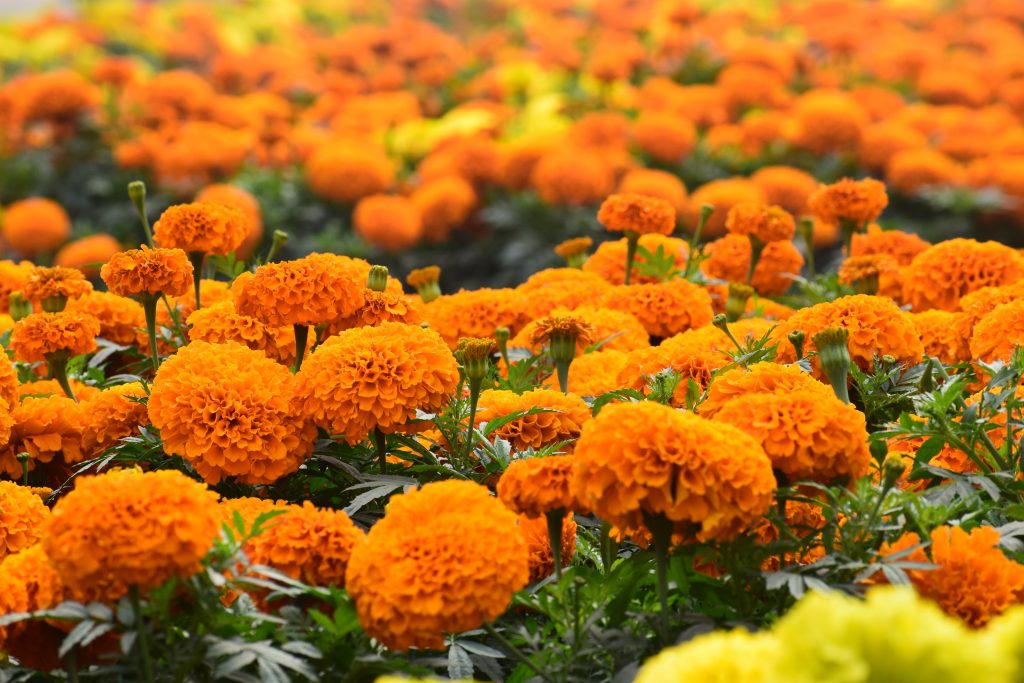
Apply of wind barriers,
Most of the pests are on the windward side. Coconut branches or other barriers can be applied as wind barriers.
Smoke in the field using resin,
In the evening or early morning resin with dried kohomba, mosquitoes, Cinnamon, citrus,Dry chilli leaves with lime green leaves, coconut charcoal or coconut husk Smoking of farmland.
Encourage diversity in your garden,
- That means, If you place smaller groups of plants throughout the garden,
- Rather than planting all of your tomatoes in one place, it will be more difficult for pests to merge on the whole lot.
Always be clean,
- Disease bacterium’s can be spread by your footwear, hands, and clothes.
- Wash your hands before and after working with your plants, and Clean your tools, Soil hold on to tools may retain disease organisms.
- Similarly, clean out pots and flats before reusing them.
3 thoughts on “18 secret home pest control methods”
Leave a Reply
You must be logged in to post a comment.
Well composed articcles like yours renews my faith in today’s
writers.You’ve written information I can finally agree onn and also use.Many thanks for sharing.
Will you talk more on these points?
Ok we will add more articles on this section